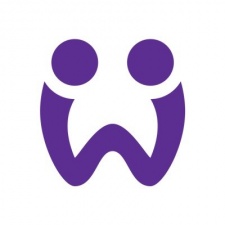Lenka Kaciakova, the vice president of Operations and Management sponsor for diversity and inclusion at Wooga, highlights the company’s vision for a diverse, welcoming and safe environment for every employee - and player.
In order to build a successful gaming brand, you have to focus on making sure everyone in your team is valued for the effort and work they put in, that you make everyone feel they belong and of course, that this is then transformed into a successful and interesting product.
Four years ago, at the end of 2018, Wooga was one of the first gaming companies that set out to focus on story-driven casual games, and since then we have been able to grow into one of the industry leaders in this category with the growing global success of June’s Journey.
Pushing boundaries
Wooga, which is part of the Playtika® family of brands, was able to build a strong foundation thanks to making this decision. Our games want to push the boundaries of the story-driven category - crafting compelling player fantasies where the player is the star and their actions drive the narrative forward.
Wooga’s games mainly appeal to women. When compared to the ‘classic’ gaming sector, the target group for casual games is still much more diverse. For example, around two-thirds of the players of June's Journey are female.
At Wooga we decided six years ago that we want to work towards a more even gender split within our workforce. Today we can report that 42 percent of Wooga's approximately 300 employees identify as female.
Percentage of women who work in technology at Wooga used to be 10, today this number is up to 24%. In leadership roles, we are proud to have 40 percent women. To achieve all this, we started seven years ago at the roots and looked and continuously look out for female candidates early on at events such as talent days.
Making Gaming More Female
As McKinsey suggests, It’s necessary to go beyond the critically important but smaller successes in women's representation in games and do the deep cultural work necessary to create a workplace where all women - and employees - feel they belong. The status quo, unfortunately, is that the games industry has had slow progress in women's representation. This was highlighted by the Game Developer Conference's (GDC) 2021 Annual Report, which indicates that only 21 percent of employees at the game studios surveyed were women.
While this is a real achievement Wooga is striving harder and working on further improving on a daily basisLenka Kaciakova
However, diversity at Wooga is not a ‘numbers thing’ or a quota but more about how everyone can be challenged and can challenge others from all sorts of diverse perspectives, that can enable everyone to do the best they can and therefore transfer this perspective into the best products for our players. With June’s Journey, our most successful game, the narrative is dominated by diverse stories. The more our team members who are creating the games can build authentic experiences into the narrative world, the more the players will be able to relate to it - because they will see reflections of their own world in there.
We take great pride in showing the diversity of the world we live in through the game’s world. This showed us that if you want to build great products, you need great teams. And great teams are made of diverse individuals that can look at a challenge from many different angles. This energy will bring creativity and real innovation because each team member will learn from and communicate with others.
Ongoing improvement
While this is a real achievement Wooga is striving harder and working on further improving on a daily basis. For example, Wooga has always had an internal women's group for informal exchanges, but to really make a difference, we firmly believe that a sponsor at the management level is an absolute must.
In addition, the company employed an external coach to provide training on unconscious bias for all employees and since a one-time training is not enough, the coach also conducted in-depth workshops with our HR managers and consulted with the HR department. These initial internal activities allowed the topic to be placed on the agenda of all employees and gained momentum from there.
Yet, hiring for diversity and building an inclusive work environment means making sure that every candidate, regardless of any protected characteristic they have, participates in an equal, fair, and safe hiring process. Wooga has therefore introduced a training called ‘From Unconscious Bias to Conscious Inclusion’ where the employees can learn about diversity and inclusion from a theoretical introduction and progress to become better allies to employees from under-represented groups.
When it comes to hiring, Wooga uses diverse platforms and job fairs to advertise our jobs and recruit new talent, and thanks to these we are able to engage with multiple underrepresented communities.
We really are committed to providing a friendly, safe and welcoming environment for everyone who works here, regardless of gender, gender identity and expression, sexual orientation, disability, physical appearance, body size, race, age, religion (or lack thereof) and game preferences and, as a company and as an employer brand, have become front-runners in Diversity in recent years. As a testament to that, we have significantly been part of the top one percent of German employers since 2020.





















